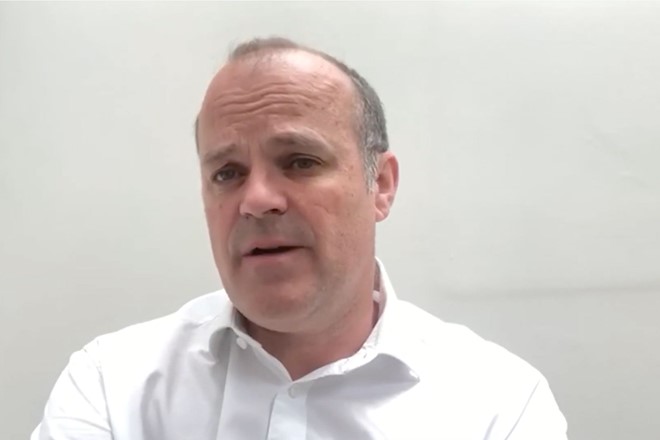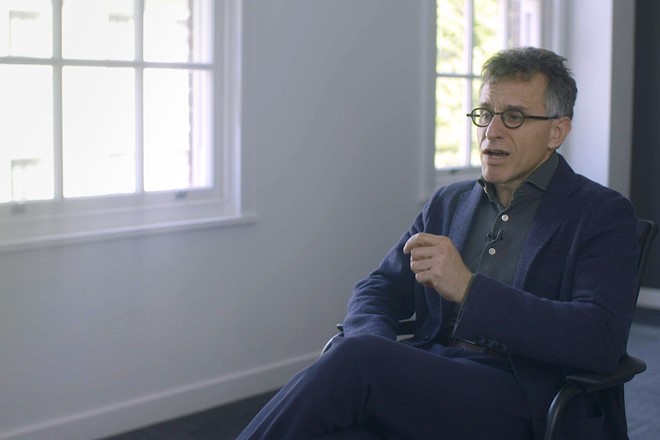
Chris Hollowood, Syncona Investment Management Limited CEO
No one was optimistic that the biotech sector would return to strength in 2023 and I think it was a year that many executives were glad to see the back of. Continued economic uncertainty and high interest rates meant riskier asset classes such as biotech remained out of favour with many investors.
With capital expensive and in limited supply, it was a year of difficult decisions as companies chose to preserve cash and prioritise pipelines. We worked with companies across our portfolio to take some of these decisions and, while we are seeing conditions beginning to improve, we do expect some of these challenges to continue in 2024, underscoring the need for companies in this sector to remain prudent and focused.
This time last year I described what I felt was a Darwinian transition affecting the biotech sector. One that followed a bull-run of the preceding years when money was pouring into the sector, inflating valuations and allowing for little distinction between good and bad science, as well as the quality of the programmes developed from it. Contrastingly, this Darwinian period would be one where only high-quality companies with good science would survive.
In 2023 we saw this scenario play out, significantly but not completely. It has been tough, but we stand by the view that this transition is positive over the longer term. Encouragingly, we’ve seen a return to clinical data driving value and a substantial distinction in public biotech company valuations by stage of development. This is an important step on the journey to operating in a more productive biotech market, where companies that can build differentiated products will attract appropriate capital and win over the long-term.
Cautiously optimistic for the year ahead
A strong final quarter in 2023 that saw a rally on the XBI and a spate of confidence-boosting M&A deals has bolstered sentiment across the sector. At Syncona, we’ve been encouraged by the same green shoots, but we are perhaps a little more cautious than others.
The overall market is looking better than it did this time last year, particularly in the public domain. Challenges do remain, however, particularly for private and earlier-stage companies, who still have a difficult financing environment to navigate.
The private funding environment for early-stage biotech will likely take the longest to correct with venture capital firms focused on their existing portfolio companies. Significant financings will be difficult to execute and companies will need to demonstrate good science, strong data, strategic execution and agility to survive. That said, for those that can survive, there is significant value to be unlocked at a later stage.
This concept underpins our strategy. Over the last few years, we’ve talked a lot about the returns available as companies mature and we are seeing the value proposition shift even further towards the late stage in this market. In fact, one of the most promising signs of a potential recovery has been the value ascribed to late-phase assets in recent acquisitions, which sits alongside the continued recovery in valuations for these assets in the public markets.
There was a flurry of premium-strong deal making at the end of 2023 and early this year. We have seen a range of deal structures including acquisitions, collaborations and licensing agreements. For example, we recently announced a significant strategic collaboration between our portfolio company Autolus Therapeutics and BioNTech, who is looking to tap into Autolus’ expertise in the CAR-T cell therapy space.
Established biopharma companies know exactly the level of innovation biotech can offer and are often looking to replenish portfolios with late-stage products, particularly as patent cliffs loom large. However, they are willing to let biotech companies handle early-stage development and pay for technology when it reaches a later-stage, rather than increase the risk they are willing to take on by pursuing earlier-stage acquisitions. Generally, we expect to see this dynamic strengthen between biotech and pharma in 2024 and, with that, increasing value of M&A, although the number of deals may not significantly increase, and a continued recovery in late-stage valuations. Improved valuations to earlier-stage assets will lag, however, as the private markets have not yet completed the necessary restructuring and revaluation.
Where to play?
Recent deal flow is a good indicator of what investors are most excited about, as money tends to follow the therapeutic areas of the moment.
It was a bumper year in metabolic diseases, with obesity products taking the world by storm, and breakthroughs in Alzheimer’s and schizophrenia revitalising the CNS space after decades of limited progress. Immunology and inflammation attracted investment too and we were pleased to see our portfolio company Quell Therapeutics receiving significant backing from AstraZeneca in a collaboration agreement which has the potential to be worth more than $2 billion.
We anticipate progress this year for some historically unloved therapeutic areas, such as heart and kidney diseases, where many companies enjoyed a solid year of investment and innovation in 2023. It’s always good to see a resurgence of interest in an area of science and we are tracking progress closely with our companies Forcefield Therapeutics (developing therapies for heart attacks) and Purespring Therapeutics (developing gene therapies for chronic renal diseases).
We also see an improving outlook for cell and gene therapy this year, as the development and manufacturing challenges that bogged the sector down are progressively solved and industrialised, allowing the therapeutic profiles that only these modalities can deliver to become evident and in turn lead to more and more drug approvals. We have deep expertise in this area and have been pleased to see companies continue to relentlessly drive innovation, while the FDA has shown willingness to accelerate development and expand access.
There were hints of this in 2023 with seven new cell and gene therapies approved by the FDA and there are 17 more lined more up for decisions in 2024, including Syncona portfolio company Autolus’ lead obe-cel therapy. Whilst the initial excitement around these therapies has settled to some degree, they are now a mainstay and have become important modalities with which we can attack disease.
Strong fundamentals promise a biotech bounce back
The fundamental need for new medicines underpins biotech’s longevity and, despite the market downturn, we’ve seen some excellent acceleration in science over the last few years. We remain bullish about the future of the sector and believe that we are at a critical juncture for drug discovery.
We have more modalities and tools available than ever before to make a difference to patients, which is paired with better insights into the biological and genetic basis of disease. This allows the industry to approach drug discovery with growing precision and pace.
We believe at Syncona we are truly differentiated in our ability to bring all the key ingredients of a successful biotech business together – great science, differentiated strategy, strong capital base and great people.
We believe in the fundamentals of our sector and are increasingly optimistic as the financing environment improves, but 2024 is not without its headwinds. A year of rising global tensions and political transition lies ahead with potential for a broad impact on the macro environment. Whatever happens, we will remain focused on executing our strategy to deliver long-term growth, as we have done throughout these challenging times. Our unwavering conviction and investment in the sector means we are well positioned for the inevitable re-rating that will come to the biotech sector. In parallel, the re-rating of the Syncona portfolio will benefit from the difficult decisions we have taken in recent times. Ultimately, we will continue to ensure the best ideas in the portfolio receive the right capital and the relentless focus required to develop programmes to late stage and approval. This is how we will drive value over the long term.


